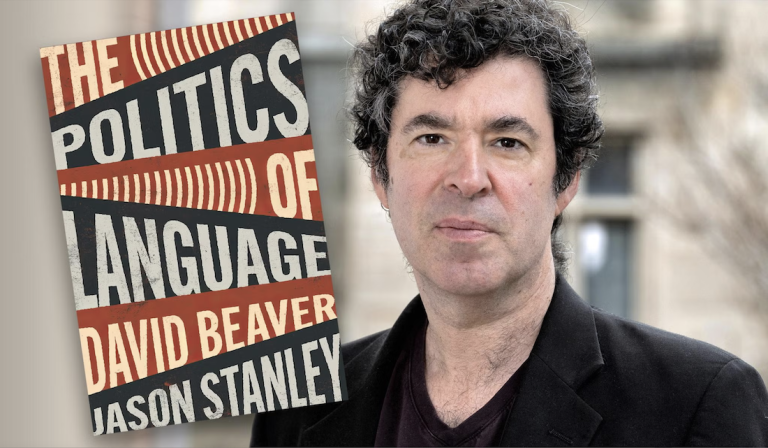
New York, N.Y. — In an era when words shape wars and elections, Yale philosopher Jason Stanley has emerged as a voice of clarity, decoding the hidden meanings behind political rhetoric.
Since his 2018 bestseller, How Fascism Works: The Politics of Us and Them, Stanley has been a fixture on airwaves, illuminating how language can be weaponized. His latest book, The Politics of Language (Princeton University Press), co-authored with linguist David Beaver, dives deeper, revealing how every word carries a history that politicians exploit to sway hearts and minds.
With a nostalgic nod to the power of straight talk and an upbeat belief in understanding speech’s complexities, Stanley’s work feels timelier than ever.
Unpacking “Hustle” Speech
Stanley introduces “hustle” as speech with hidden intentions, a concept central to The Politics of Language. Unlike transparent communication, hustle embeds secret messages, often unconsciously, within words’ historical associations. “Straight talk is when everything’s transparent,” Stanley told Yale News.
“Hustle is everything else.” This framework, built over eight years with Beaver, challenges traditional linguistics by grounding meaning in speech practices—how words are used over time. For example, a politician’s phrase like “inner cities” may carry racist undertones, veiled by plausible deniability, allowing harmful messaging to slip through unchallenged.
The Emotional Power of Words
Words evoke involuntary images and emotions, Stanley argues, making them potent tools for manipulation. Politicians imbue terms like “Marxist” with disgust or label immigrants as “vermin” to incite violence.
“Each word is part of a speech practice and has a history,” Stanley said. Repetition amplifies this effect, embedding propaganda in listeners’ minds. Terms like “CRT” or “DEI,” repeatedly tied to negative emotions, become triggers for dislike, regardless of their actual meaning. Stanley’s nostalgic reflection on clearer communication highlights the loss of straightforward discourse in today’s polarized world.
Confronting Harmful Rhetoric
The Politics of Language tackles harmful speech, including slurs, dog whistles, and genocidal narratives. Stanley points to Russia’s justification for invading Ukraine, where Putin frames Ukrainian identity as “anti-Russian,” a genocidal narrative denying its legitimacy. “When you represent others as an existential threat, that’s genocidal,” Stanley said. His analysis bridges philosophy and linguistics to expose how such rhetoric thrives on non-transparent speech practices, offering a framework to counter authoritarian language globally.
A Philosopher’s Mission in Ukraine
Stanley’s commitment extends beyond academia. Recently appointed to a visiting teaching position in Kyiv, he taught a course on colonialism and fascism to 300 Ukrainians last August. Donating his salary to Come Back Alive, a Ukrainian military support organization, Stanley sees his work as resistance against authoritarianism. “I’m an anti-fascist,” he said, reflecting on Russia’s attack on Ukraine’s democracy. His upbeat resolve to educate and engage underscores the book’s relevance in a world where language fuels conflict and division.
Stanley’s work evokes a nostalgic yearning for a time when words were less weaponized, yet his optimism shines through in his belief that understanding speech practices can empower us. The Politics of Language is not just a scholarly triumph but a call to listen critically, especially as authoritarian rhetoric rises. As Stanley bridges philosophy, linguistics, and real-world crises, his voice reminds us that decoding language is key to defending democracy.
Yale Philosopher Decodes Authoritarian Language in New Book (April 22, 2025)
About Jason Stanley: Jason Stanley is the Jacob Urowsky Professor of Philosophy at Yale University. Before coming to Yale in 2013, he was Distinguished Professor in the Department of Philosophy at Rutgers University. Stanley is the author of Know How; Languages in Context; Knowledge and Practical Interests, which won the American Philosophical Association book prize; and How Propaganda Works, which won the PROSE Award for Philosophy from the Association of American Publishers. He writes about authoritarianism, propaganda, free speech, mass incarceration, and other topics for The New York Times, The Washington Post, The Boston Review, The Guardian, Project Syndicate and The Chronicle of Higher Education, among other publications.